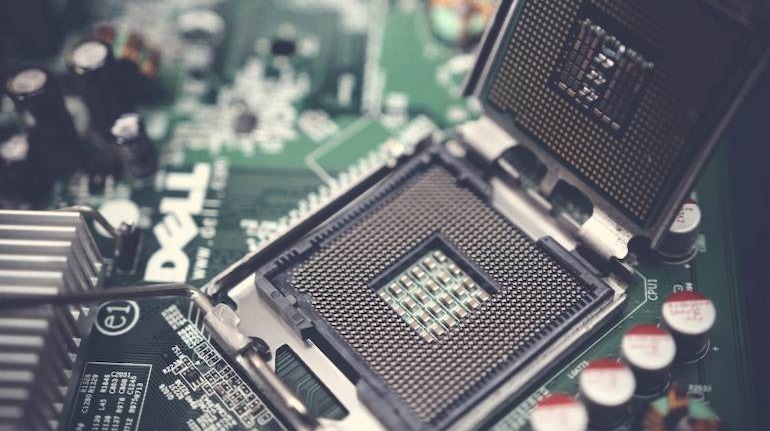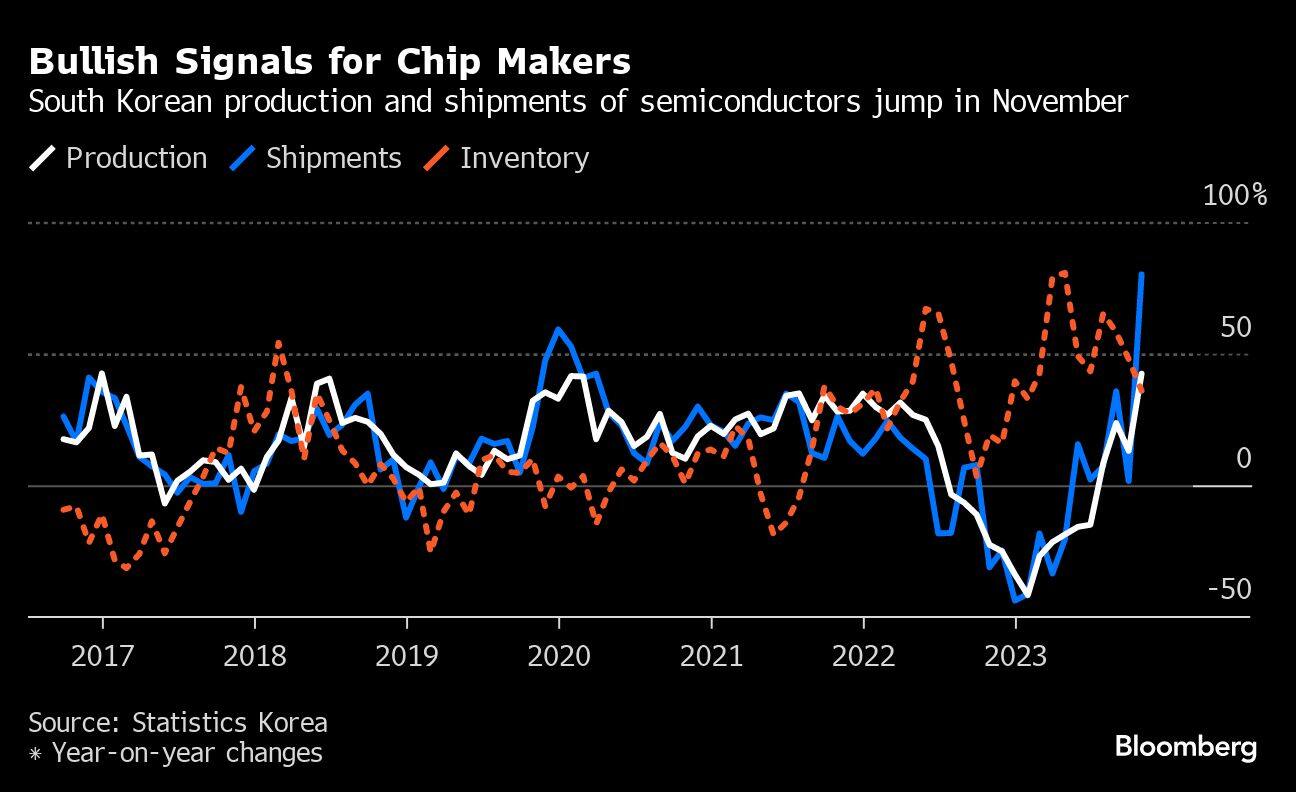
South Korea’s semiconductor industry recorded the largest gains in years in both production and shipments, underscoring a revival of technology momentum that bodes well for the nation’s economic outlook next year and for the global tech sector.
Chip production jumped 42% in November from a year earlier, the most since early 2017, while shipments soared 80%, the biggest gain since late 2002, according to data released Thursday from the national statistical office. Inventories expanded by 36% in the smallest rise since February.

The numbers suggest South Korea’s most important industry is roaring back from a slump that weighed on the economy for more than a year and add to optimistic signals for chipmakers such as Samsung Electronics Co. and SK Hynix Inc., two of the country’s biggest companies. The figures also suggest a nascent recovery in global tech sector demand may be gaining momentum.
South Korea’s trade-reliant economy has muddled through 2023 with suppressed demand for semiconductors and is forecast by the central bank to have expanded 1.4% this year, less than 2.6% last year, under higher interest rates, an economic slowdown in China and geopolitical risks.
The latest chip data suggest the nation’s tech manufacturers may help support growth. The strength of semiconductor makers drove a better-than-expected 5.3% expansion in the nation’s industrial output from a year earlier in November. Demand for high-performance semiconductors has in particular helped the chip and machinery industries, the Finance Ministry said in a statement following the data.
What Bloomberg Economics Says...
“The steeper-than-expected rebound in South Korea’s industrial output in November — which reversed a big fall in the prior month — suggests the economy is gathering steam in the fourth quarter.”
— Hyosung Kwon, economist
For the full report, click here
The Bank of Korea sees the economy expanding 2.2% next year on the back of exports gaining further strength after they returned to growth in October this year. Memory-chip prices are starting to bounce back while emerging technologies such as artificial intelligence add to demand.
“We expect industrial production to pick up as global appetites for South Korean goods grows and as the local headwinds of high inflation and interest rates ease,” Shannon Nicoll, associate economist at Moody’s Analytics, said in a note.
Risks for the South Korean economy include global economic growth likely slowing next year with China continuing efforts to shore up its economy. US consumers may also start to feel a pinch from prolonged tightness in interest rates while global commerce continues to face the threat of protectionism.
Check Free Credit Score on Moneycontrol: Easily track your loans, get insights, and enjoy a ₹100 cashback on your first check!